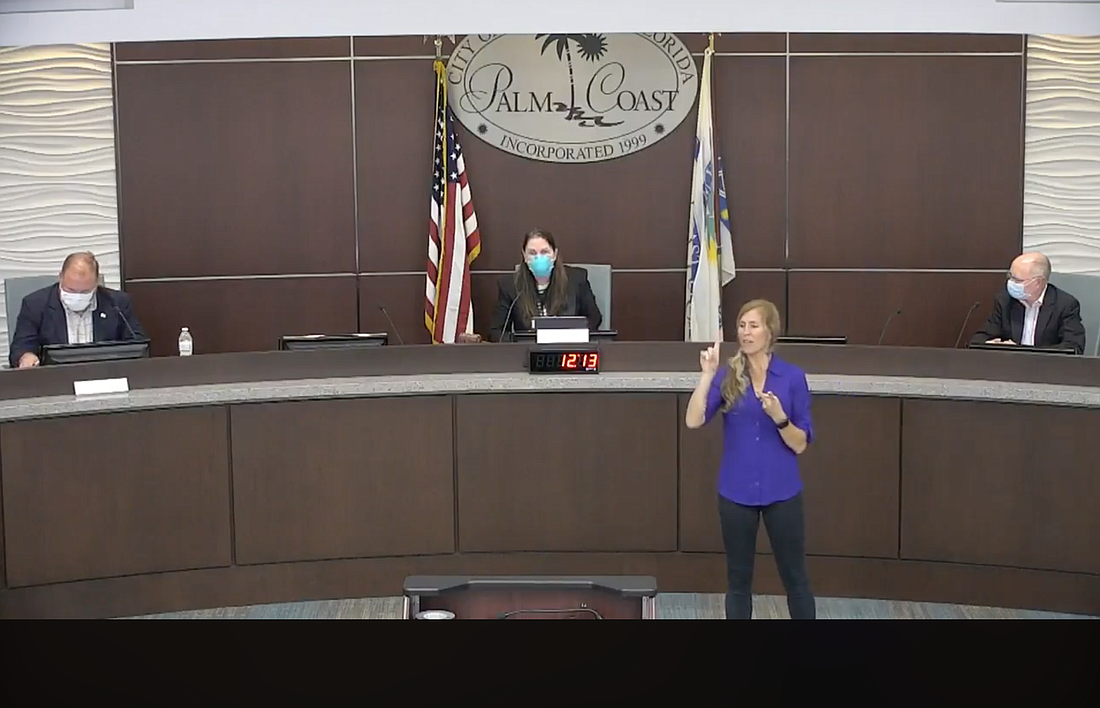- January 20, 2025
-
-
Loading

Loading

Before the community reopens, health experts said during Palm Coast's Virtual Town Hall on April 15, the community will need to reach a low enough number of COVID-19 cases that it will be possible to use containment measures to stop any spread.
"There are two things that are really bad for a virus for humans. One is does it spread easily, and the other is does it cause serious illness. And this one does both."
— DR. STEPHEN BICKEL, medical director, Florida Department of Health-Flagler
"The general idea is that you don't want to do this too soon; you want to virtually wipe out the spread in the community before you relax things, and that's probably on the state level," Florida Department of Health-Flagler Medical Director Dr. Stephen Bickel said. "The number they've been talking about is when you get to 10 or so cases in a state per day."
If the community could get the number of cases low enough and its resources to combat the virus high enough, he said, "We could let the community go on about its business — which South Korea more or less did — and continue an extremely aggressive surveillance, testing and case containment program, so every time we found a case, we kept it under control and it never spread into the general community."
That's difficult, he said, because the virus is thought to be considerably more contagious than the flu.
"You don't want to jump the gun, because if it slips and you start getting a second wave, then you have to do ... restrictive measures for several weeks to get it under control again," Bickel said.
Florida Department of Health-Flagler Administrator Bob Snyder said that epidemiological modeling from the University of Washington shows that the state has not yet reached the top of the COVID-19 curve; the peak is now expected in early May.
In Flagler, Snyder said, "The big news is testing: It's improved, and it has increased."
Testing in Flagler County had increased by 69% since the previous Wednesday, he said.
The county has opened a drive-thru testing center at the Daytona State College campus in Palm Coast, which is currently testing residents who have clinical symptoms, elderly people with underlying conditions, and people with symptoms who are immunocompromised. The site will continue to operate while supplies last, he said. (To make an appointment for testing, call 386-313-4200.)
AdventHealth Palm Coast is also working to provide testing, while Diagnostic Solutions Laboratory — an Atlanta, Georgia-based company that has corporate offices in Palm Coast — is testing samples and producing results in a day.
The hospital is also providing antibody testing for people who have a doctor's order, said Wally De Aquino, chief operating officer of AdventHealth Palm Coast. He urged people who've had COVID-19 and recovered to reach out to their physician to see about getting an order for antibody testing.
"This is an important step so we can identify donors that have the antibodies that could be part of this treatment," he said. "If there are any converted patients here who, at least 15 days ago, they experienced symptoms and they were positive, and they no longer have any of the symptoms, please reach out to OneBlood and see if you're eligible to donate."